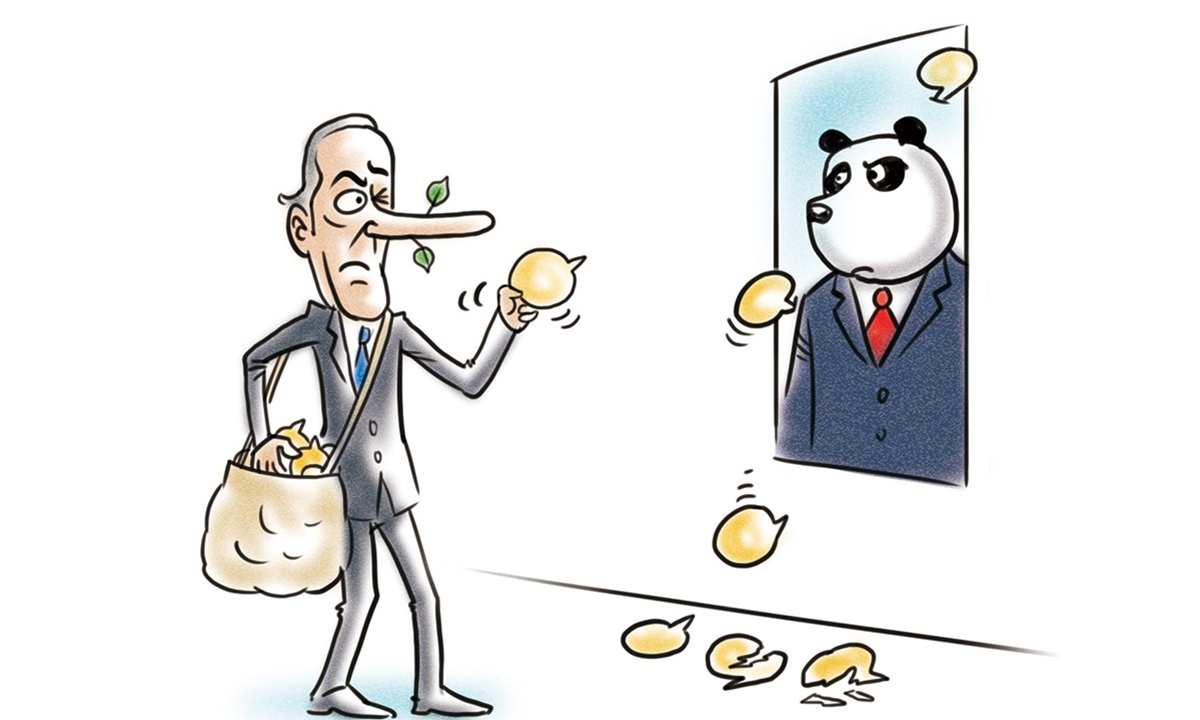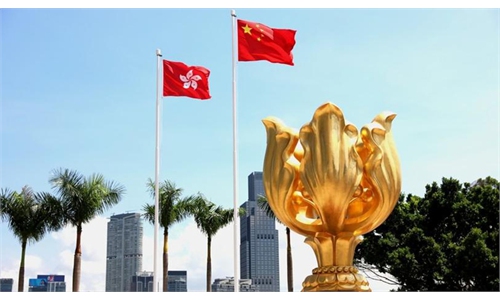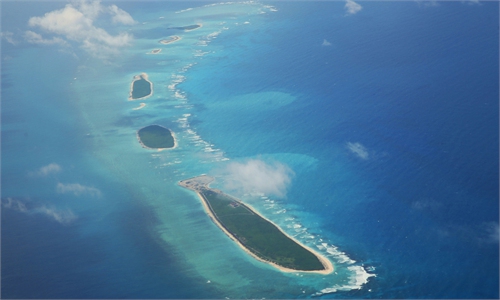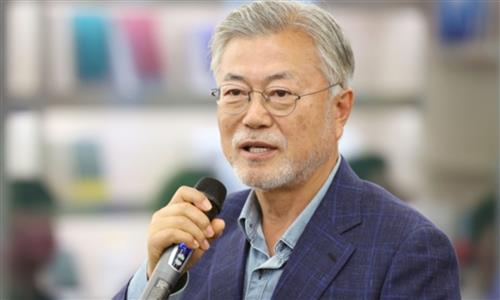
Western smear Illustration: Liu Rui/GT
Recently, the Australian Strategic Policy Institute (ASPI) has faced "a cut in funding" after the US government suspended its financial support. Earlier, ASPI's head of China investigations and analysis published an article warning that the funding freeze would plunge the anti-China ecosystem "in crisis" and urged the US or other donors to continue supporting relevant operations. This has culminated in an absurd farce, where anti-China forces - once merely puppets - are now openly lamenting their lack of funds after their strings have been cut. This debacle not only strips away the pretense of "independence and objectivity" from certain think tanks, but also fully exposes the chain of "cognitive warfare" in which their "financial backers" manipulate international public opinion and weave lies about China.
In recent years, within the international "industry chain" of fabricating rumors about Xinjiang and China, ASPI has emerged as one of the notorious players. Some well-known falsehoods - such as depicting Xinjiang cotton, tomatoes, and even chili peppers as "forced labor" products; falsely labeling Xinjiang's schools and residential areas as "detention centers"; and manipulating photos of Xinjiang women receiving free medical check-ups into alleged "sterilization surgeries" - have largely originated from ASPI and its hired pseudo-scholars, such as Adrian Zenz. Moreover, rumors that Huawei's 5G poses a "threat to Australia's national security" and that Chinese influence "penetrates Australian political and academic circles" also bear ASPI's imprint.
For years, ASPI has been funded by anti-China forces and has fabricated lies about Xinjiang and China - a truth that has been extensively exposed by both domestic and international media, including the Global Times. Many discerning Australians dismiss it outright. Former Australian ambassador to China Geoffrey William Raby has called ASPI "the architect of the 'China threat theory' in Australia"; Tony Walker, veteran editor for a business newspaper, has slammed its "dystopian worldview," which "leaves little room for viewing China as a potential partner"; and former Qantas CEO John Menadue said that ASPI "lacks honesty and brings shame to Australia."
It is clear that although ASPI consistently touts itself as an "independent" research institution, in reality, it is neither independent nor engaged in genuine research. While it claims to be "independent," its actions reveal a deep financial opportunism. The head of China investigations and analysis, Bethany Allen, bluntly stated that sustaining its anti-China operations requires only "a few million dollars" - a blatant "price tag" that fully exposes the cheap, utilitarian nature of its anti‑China activities. The so-called "research findings" it produces are derived either from leads provided by anti‑China NGOs or from unverifiable, untraceable so‑called fundraising evidence. As Chinese Foreign Ministry Spokesperson Mao Ning noted, ASPI "clearly violates the professional ethics of academic research" and "there is no credibility to speak of for this so-called institute."
This "funding crisis" has revealed not only the financial disgrace of ASPI but also the collapse of the entire anti-China ecological chain. Behind the scenes, the "financial backers" have connected think tanks, media, and organizations into a "lie production line" through funding. So-called "think tanks" like ASPI are responsible for concocting "academic ammunition," some media outlets sensationalize and amplify panic, while certain organizations exert pressure under the guise of "human rights defenders." This "trinity" model essentially attempts to construct a cognitive wall against China using false narratives. The China project of ASPI now faces the predicament of halted research, employee layoffs, and ridicule on social media, exposing the inherent weakness of the anti-China industrial chain.
The ASPI case is by no means an isolated incident. Some organizations, disguised in "academic attire," engage in political manipulation and turn the international public opinion arena into a dumping ground for false information. They use methods such as data fabrication and quoting out of context to package biases as "authoritative reports," attempting to deceive the international community's understanding. Some media outlets, without discernment, have amplified their fabricated "achievements" and even knowingly provided a platform for them. Recently, a certain Western media outlet made a significant mistake in its reporting after inviting Adrian Zenz to "dig up dirt on China." Such lessons are worth learning from and reflecting upon for some Western media outlets. True academic research should transcend narrow private interests and political biases, serving the common good of humanity. We call on think tanks and media in various countries to uphold professional ethics and resist the temptation of financial manipulation; urge relevant countries to stop funding the anti-China misinformation industry and to ensure that academic institutions do not become political tools; and we hope that the general public will remain vigilant and recognize the business practices of certain organizations that "take money to defame China."
When ASPI staff members complained about lack of funding for its "China research" on social media, some foreign netizens sarcastically pointed out, "Important research related to China? You mean anti-China propaganda, right?" This illustrates that while lies may temporarily make a lot of noise, they ultimately cannot withstand the scrutiny of the truth. China's development achievements and ongoing contributions to the world serve as irrefutable evidence that dismantles all rumors.



